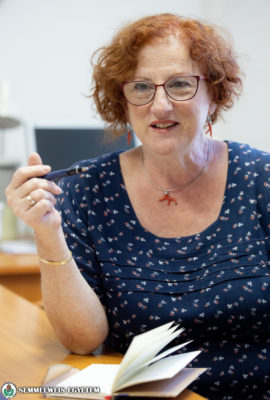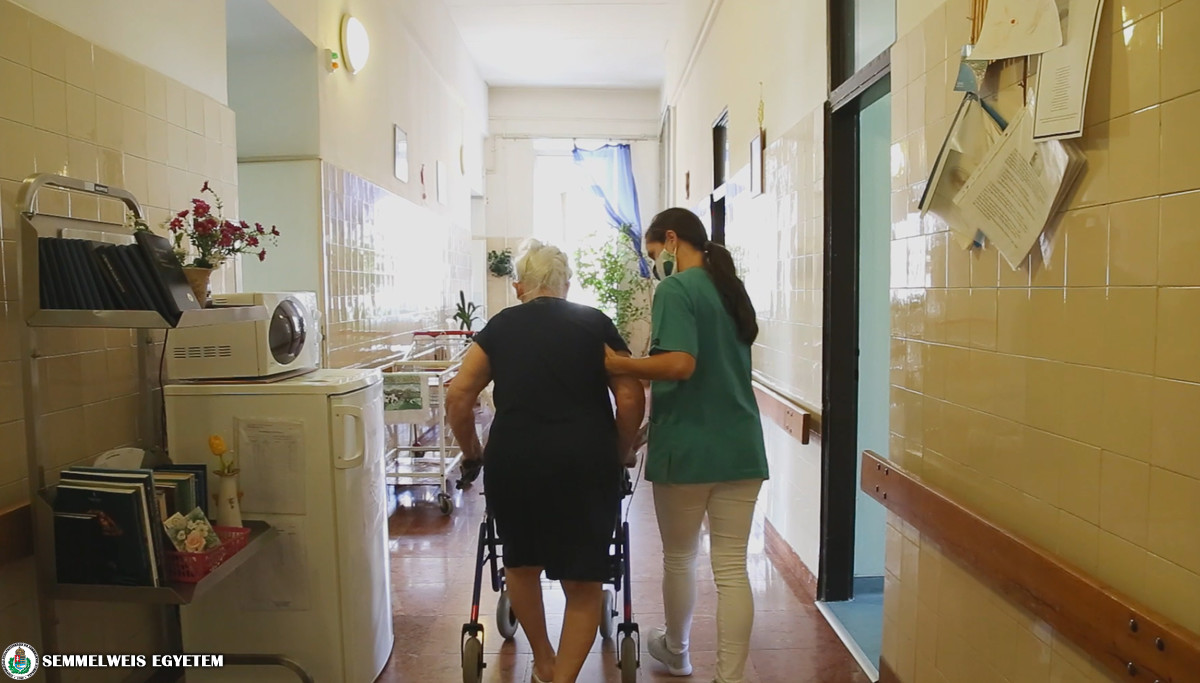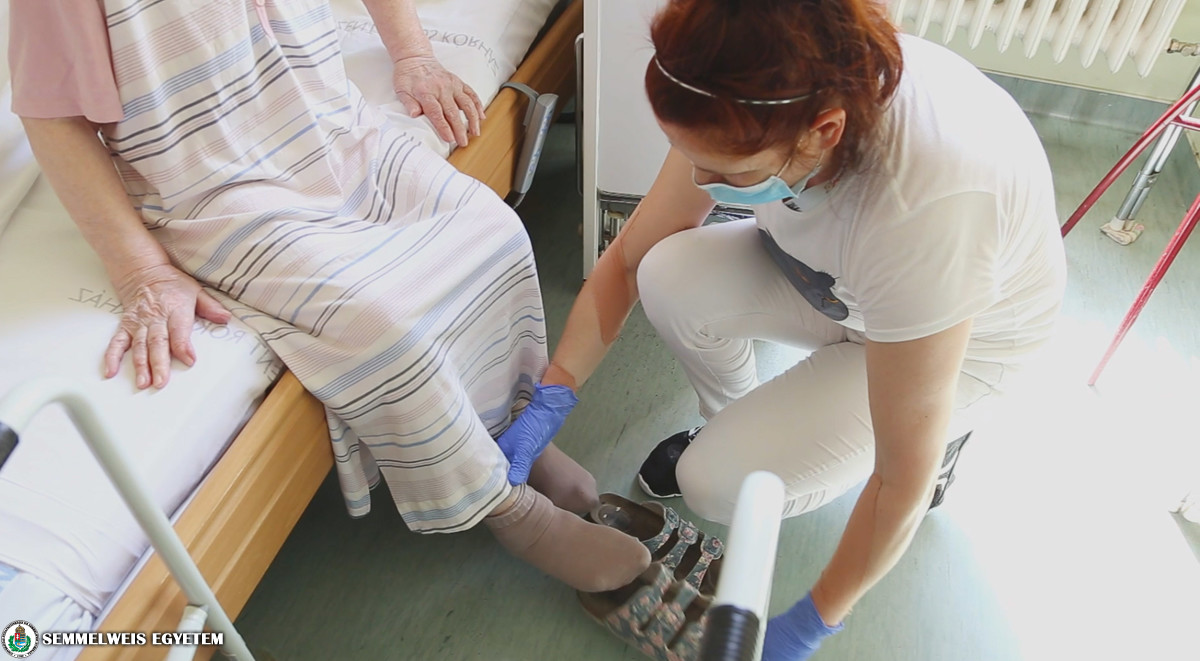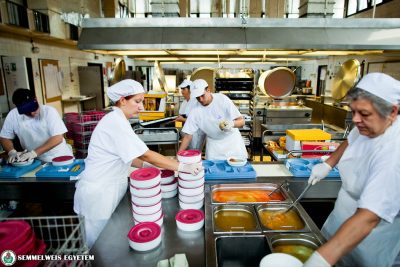Since the beginning of the 2000s, life expectancy at birth has increased by nearly five years in men and by three years in women. In Hungary, major part of health care is aimed at the treatment of people over 60, therefore cardiology, oncology and geriatrics are health care areas affecting most Hungarian families. According to Dr. Klára Gadó, Acting Director of Semmelweis University’s Department of Geriatrics and Nursing Science Centre, one should start consciously preparing for a good quality of life in old age when they are still young.
Based on statistical data, men lived for an average of 68 years and women for 76 years in 2001, while the average life expectancy in 2019 was nearly 73 for men and 79 for women. It is also equally important to spend most of our lives healthy. Today, the number years spent in good health are 62-63 on average. The challenge of geriatrics is to minimize the difference between life expectancy and the number of healthy years, however individuals need to make efforts to keep healthy as well. Attending screenings, doing sports and a healthy diet are all essential in maintaining a good quality of life and preserving dignity.
In old age, each organ system works in a different way. Diabetes, atherosclerosis, high blood pressure, heart failure, kidney disease or thrombosis are all problems that affect nearly every elderly person.
 “It is rare for and elderly person to have only one disease, it is more typical to have problems with more organs at the same time. A good doctor does not always operate a deformed foot or other body part, but aims at healing the whole body. Therefore, elderly therapy should be more complex that pays attention to the interactions of different drugs and maintains the fragile balance in the elderly.”, said Dr. Klára Gadó, Acting Director of Semmelweis University’s Department of Geriatrics and Nursing Science Centre.
“It is rare for and elderly person to have only one disease, it is more typical to have problems with more organs at the same time. A good doctor does not always operate a deformed foot or other body part, but aims at healing the whole body. Therefore, elderly therapy should be more complex that pays attention to the interactions of different drugs and maintains the fragile balance in the elderly.”, said Dr. Klára Gadó, Acting Director of Semmelweis University’s Department of Geriatrics and Nursing Science Centre.
Old age can also be interpreted in many different ways. Age can be expressed by the number of years (chronological age), which can be different from biological age, depending on the individual’s health. There is also psychological age, which reflects the individual’s feelings of their age, or sociological age, which means how old society considers the individual. Based on the definition of WHO, people between 60 and 74 are elderly, between 75 and 89 are old and people over 90 are classified very old.
“Any disease has a better chance to be cured if recognised in the asymptomatic period. Therefore it is advised to regularly take part in the recommended and prescribed screening tests. One can recover from cancer while maintaining a good quality of life if the patient seeks medical assistance on time. Everyone is responsible for their health, it should be in our best interest to make sport and balanced diet a habit, to pay attention to maintaining muscle mass and losing excess weight.”, Dr. Klára Gadó pointed out.
From a young age we should start consciously preparing for maintaining a good quality of life in old age as well. Our personality plays an important role in this process, as people with the „glass half full” attitude tend to be better at leading a positive lifestyle. In addition, keeping up one’s interest is of crucial importance.
“Anyone can find themselves in a vacuum if they stop work abruptly and retire, as the sense of usefulness, the regularity of daily routine and structure disappears. However, this does not necessarily have to be the case because the ability of seeing and understanding things in their entirety remains even if certain skills, memory and reaction time fade in old age. It is also important for pensioners to have a hobby, caring and loving emotional environment and family. The role of grandchildren in providing an emotionally rich ambience is crucial, as their relationship to the grandparents is a unique emotional bond enriching the lives of both young and old.”, said Dr. Klára Gadó.
That is why, the months of the quarantine during the coronavirus epidemic were difficult for families, because it made physical contact with loved ones impossible. However, meaningful leisure activities, such as online theatre performances, visits to museum or concerts could make up for the physical absence of the family. Music, dancing or playing cards can be meaningful pastime activities for the elderly and having a pet could also recharge the emotional batteries.
When communicating with the elderly, it is also important to keep in mind that vulnerability increases as independence decreases, but maintaining dignity can counteract it. We should try to talk to elderly family members according to their condition: we should make sure that they hear and understand what we are saying.
Since 1st June Szent Rókus Hospital has been part of Semmelweis University, including the Department of Geriatrics and Nursing Science Centre, a 125-bed joint department of the Faculty of Medicine and the Faculty of Health Sciences. In addition to patient care, the hospital plays a key role in theoretical and practical education of students.
Orsolya Dávid
Photo: Attila Kovács, Bettina Gál – Semmelweis University
Translation: Ágnes Raubinek





